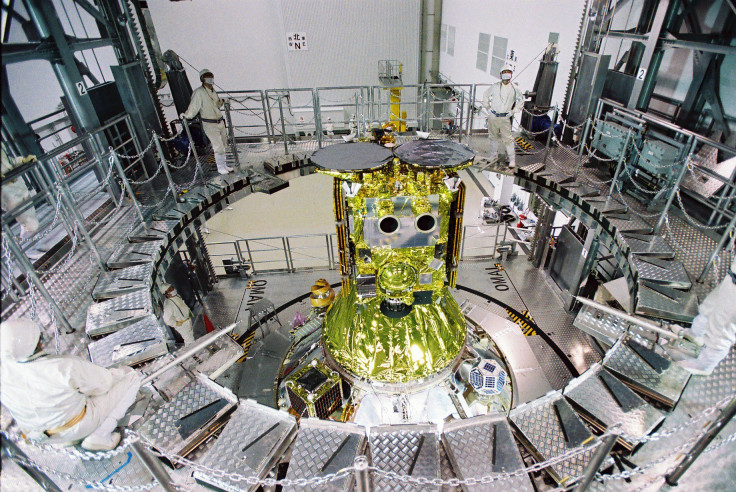Japan's Asteroid Probe To Lift Off On Monday After Bad Weather Delays Launch

The launch of Japan’s Hayabusa2 space probe, aiming to collect samples from an asteroid, has been delayed because of bad weather, the Japan Aerospace Exploration Agency, or JAXA, said in a statement Saturday. Originally scheduled for Sunday, liftoff is now set for Monday.
“The launch of the H-IIA Launch Vehicle No. 26 with the Asteroid Explorer Hayabusa2 on board has been rescheduled as clouds including a freezing layer that exceeds the restrictions for suitable weather are forecast to be generated at around the scheduled launch time on November 30,” JAXA said in a statement Friday.
The $260 million Hayabusa2 space probe is being launched four years after the completion of the first Hayabusa mission. It aims to collect samples from an asteroid named 1999 JU3, a roughly 3,000-foot, spherical asteroid circling the sun in an orbit that crosses the Earth’s. The mission will reportedly help build on the findings of the first Hayabusa mission, which was partially successful in returning samples from a near-Earth asteroid named 25143 Itokawa in June 2010.
The Hayabusa2 probe will drop a so-called impactor on the asteroid’s surface, creating a small crater that will allow the probe to collect samples from it, JAXA said. The hope is that the dust samples may help scientists answer fundamental questions about the universe, including the origin and evolution of life on Earth.
“The asteroid is carbonaceous, and we may find organic matter and water, the stuff of life,” Hitoshi Kuninaka, the Hayabusa2 program manager, reportedly said on the JAXA online site.
“Knowledge of those materials helps us not only learn about the solar system in terms of its early stages of formation, but it also helps us [discover] how life on Earth may have evolved and where the oceans of Earth may have formed,” Paul Abell, a planetary scientist at NASA’s Johnson Space Center in Houston, told Discovery News. “If you have meteorites that just fall to Earth, there’s always the question of whether or not those types of organic molecules, some of the volatile materials and the water is due to contamination ... we need something pristine and completely uncontaminated.”
If everything goes as planned, then Hayabusa2 should arrive at the asteroid in mid-2018, JAXA said. It would spend nearly 18 months on it, before returning to Earth in 2020.
© Copyright IBTimes 2024. All rights reserved.






















